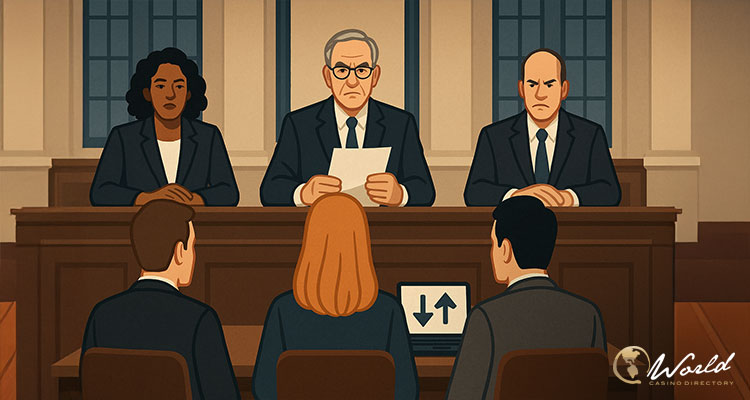The New York State Gaming Commission (NYSGC) is intensifying its scrutiny of licensed operators, focusing on whether involvement in prediction markets could jeopardize their ability to operate in the state’s regulated sports betting environment. Chair Brian O’Dwyer emphasized the need for a thorough review at a commission meeting on November 18, highlighting that these markets pose a direct challenge to both the authority of the commission and the integrity of New York’s gaming sector.
“Given the dangers of prediction markets to both the state of New York and its citizens, it is now appropriate that this commission examine whether the participation of any of our present licensees in so-called prediction markets makes them unfit to maintain their gaming license,” O’Dwyer told commissioners. He added that the commission’s general counsel and staff would conduct a detailed examination and present recommendations for future action.
Several major licensees in New York, including FanDuel and DraftKings, have announced plans to roll out sports prediction apps with geolocated contracts. In addition, daily fantasy sports operators such as Underdog and PrizePicks have already partnered with platforms like Crypto.com and Kalshi to offer prediction markets to users in certain states.
State Regulators Increasingly Warn Operators
While the NYSGC has not yet issued formal warnings akin to those seen in Arizona, Nevada, and Ohio, O’Dwyer underscored that New York requires its licensees “to be of unblemished character and of the utmost fitness,” according to SBC Americas. The commission has, however, taken direct action by sending a cease-and-desist letter to Kalshi in late October, prompting an ongoing legal dispute. O’Dwyer indicated that the agency may continue to issue similar orders and pursue additional enforcement actions to curb the expansion of prediction markets within the state.
The scrutiny comes amid broader legislative efforts, with a recently filed bill in the New York Assembly aiming to bar prediction market platforms from offering athletic event markets among other restrictions.
Revisiting Prop Bets and Wager Limits
O’Dwyer also addressed the oversight of proposition bets during the same commission meeting. In light of recent scandals in Major League Baseball and the NBA, the NYSGC is reassessing the suitability of game-specific individual player props and same-game player parlays.
He noted that while leagues like MLB have agreed to limit certain micro betting markets, “the right to limit certain wagers in New York lies solely with the commission.” Preliminary staff review of the 104 NFL prop bets permitted in the state found only one that might raise concerns, but the commission has requested input from more than 70 leagues to identify potential wagering restrictions.
“While limiting exposure is a good step, it may not be enough,” O’Dwyer said. “It is not enough. If we believe any wager is susceptible to manipulation, we will eliminate it, not restrict its offering.” The commission is especially attentive to the risks prop bets could pose to underage or problem gamblers.
Concerns Over Political and Other Event Markets
The NYSGC’s attention to prediction markets has also been heightened by politically sensitive contracts. O’Dwyer cited an example of a market predicting whether the incoming New York mayor, Zohran Mamdani, would be deported, describing it as “racist” and targeting an elected official unfairly. “If this is a joke, it’s not funny,” he added, emphasizing the potential societal harm such wagers could cause.
He further criticized prediction market operators for lacking safeguards against underage and problem gambling. Given reports that some New York licensees, potentially including DraftKings and FanDuel, intend to participate in these markets, the commission is actively reconsidering whether involvement in prediction markets should affect licensing status.
NYSGC’s current review signals a proactive approach to maintaining the integrity of New York’s sports betting industry. As O’Dwyer concluded, “Our job at the commission is to regulate wagering to drastically reduce [manipulation]… Legal gambling, even with all its inherent problems, allows the state to identify and deal with those who try to abuse the system.”


